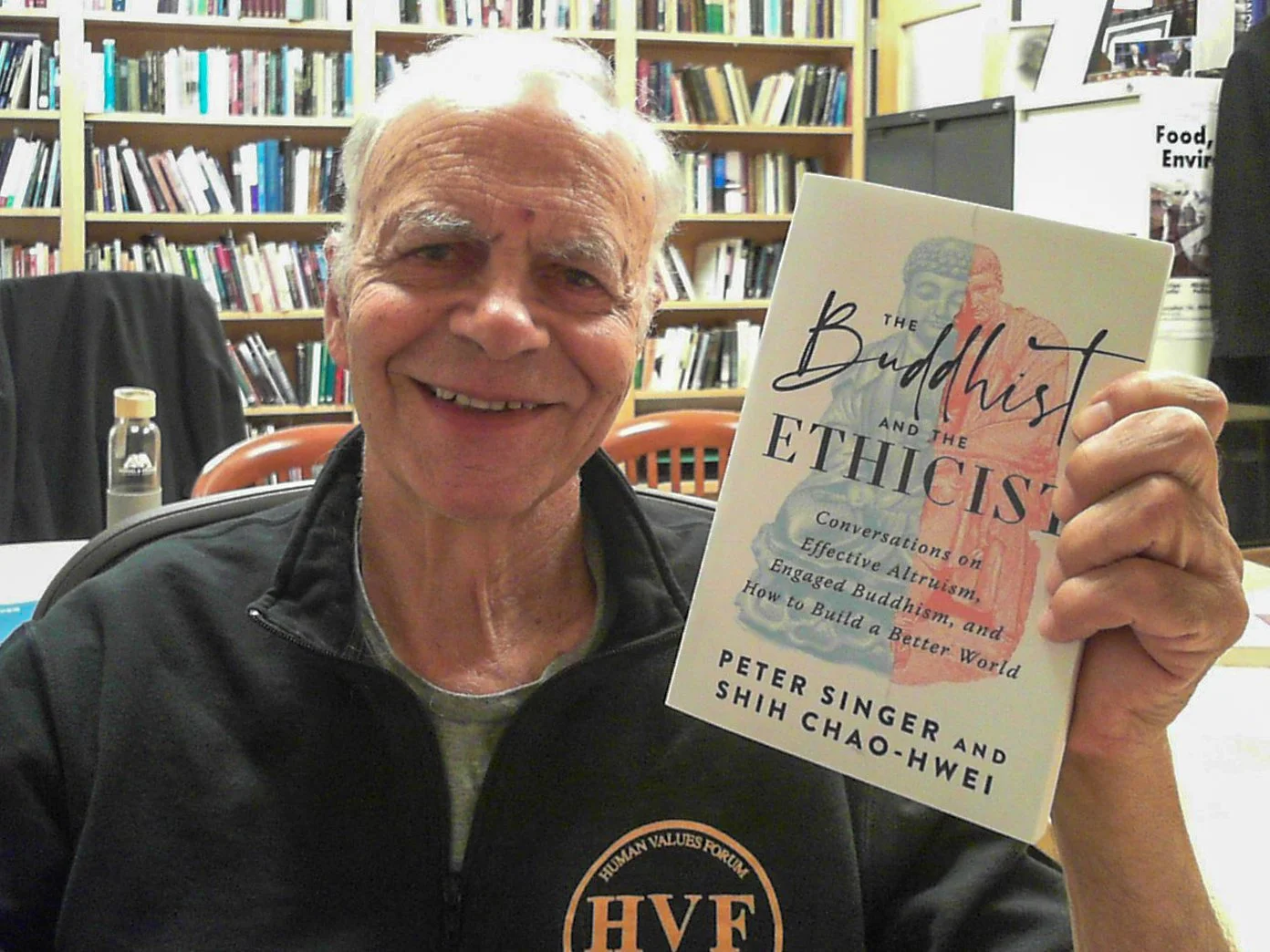Preface
Differences and Convergences
I am not, and never have been, a religious person. I have spent my life teaching and researching philosophy, particularly ethics, and I base my beliefs on evidence and reasoning, not faith. That puts me at odds with the systems of belief that are sometimes described as “the world’s major religions,” a category that typically includes Buddhism. Yet since I was a student at university, I have found Buddhism to be closer to my way of thinking than other major religions. Buddhists do not believe in a god or a divine creator. So should we really think of Buddhism as a religion, or is it rather a philosophy of life, in the broad sense of an understanding of human psychology and an approach to how best to live?
When I was still a graduate student in philosophy, I came to see that there is no justification for our exclusion of animals from the circle of beings to whom we have ethical obligations, and I stopped eating meat. Some people asked me if this view had anything to do with Buddhism. It didn’t, but it did give me a sense of affinity between my own ideas and Buddhism, because the Buddhist precept of refraining from taking life includes all sentient beings. This is, in my view, a distinct improvement over the Christian, Jewish, and Islamic religious traditions, which limit their injunctions against killing solely to members of our own species.
Nevertheless, there seemed to be some aspects of Buddhism that I could not accept. Do Buddhists really believe that if we act wrongly, we will inevitably suffer for it, as the popular understanding of the doctrine of karma suggests? That would be a complete answer to the question “Why should I act ethically?” with which philosophers since Plato have grappled, without finding, in my view, a convincing answer. But it is easy to think of people who have done great harm to others and yet were able to live long and happy lives. Some Buddhists would say that those who have caused harm will be reincarnated and their next life will be miserable, but that seems no more plausible than the Christian idea that they will burn in hell for all eternity.
I also had some ethical problems with Buddhism. For one thing, when visiting countries like Thailand and Japan, where there are many Buddhists, I found very few vegetarians. I was surprised to find that even among Buddhist monastics, many eat meat or fish, despite the fact that this obviously makes them complicit in the killing of animals. Of course, Buddhists would not be the only people to fail to live up to the precepts of their religion. Jesus is quoted in the Gospels as saying that it is easier for a camel to go through the eye of a needle than for a rich man to enter the kingdom of God, but there are plenty of rich Christians. Still, the acceptance of meat-eating by Buddhists, and the apparent absence of efforts by Buddhist leaders to do anything about it, was disappointing.
There is also a broader difference between my utilitarian view and what I took to be the Buddhist view of how we ought to live. Utilitarianism is concerned about the consequences of what we do or do not do. Utilitarians hold that we ought to do as much good as we can for all sentient beings, so utilitarianism encourages activism. Buddhism, as I understood it, encourages contemplation, focusing on meditation to improve oneself, rather than on acting to make the world a better place. I could not endorse that set of priorities.
In 2014, Venerable Shih Chao-Hwei, whom I had met many years earlier at a conference, invited me to speak at a conference in Taiwan titled “Animal Liberation, Animal Rights, and Equal Ecological Rights: Dialogues between Eastern and Western Philosophies and Religions.” She also organized a tour for me and other conference guests to Hualien City to meet Master Cheng Yen, a Buddhist female monastic who in 1996 founded the Tzu Chi Foundation, a Buddhist humanitarian organization. What we saw was most impressive, but for me the journey itself was even more significant, because in several conversations with Chao-Hwei, I learned that her understanding of Buddhism had led her to be not only a vegetarian but also an activist in many of the areas that concerned me—including, of course, the ethical treatment of animals, as well as aid to people in great need and the empowerment of those who are marginalized, especially women.
On the train to Hualien City and over delicious vegetarian meals during our travels, Chao-Hwei explained the bodhisattva tradition in Buddhism. Bodhisattvas are enlightened people who choose not to achieve nirvana, because they want to con- tinue to work to relieve the suffering of all sentient beings. She also spoke about the International Network of Engaged Buddhists, those who see engagement with the world and the reduction of suffering as important components of their way of living. These conversations made me realize that I could learn a great deal from an extended exchange of ideas with Chao-Hwei and that a wider audience—whether Buddhists, secular utilitarians, or just people interested in different ways of thinking about how we ought to live—might also benefit from our dialogue.
We have arranged the dialogues that follow to start with foundational questions about the nature of ethics, which will be a valuable precursor to our discussions of important ethical issues. I was also keen to learn more about some Buddhist concepts, particularly those of karma and nirvana, which are frequently mentioned in the West, but in a way that suggested to me that they had been taken out of their original context; hence, the popular Western understanding of them might not reflect their true sense in the Buddhist tradition. Speaking with Chao-Hwei gave me the opportunity to ask a leading Buddhist scholar, monastic, and activist, how she understands them, and we thought that this discussion would also be a useful preliminary to the later dialogues. Next, we have the dialogue in which Chao-Hwei describes her struggles when seeking equality for female monastics, as that enables readers to know more about her activism. From there, it is easy see a connection with the dialogue about sexuality, and after that we move on to questions relating to abortion and embryo experimentation and then animal welfare, the topic that originally brought us together. The last two dialogues are on issues about taking life: euthanasia and suicide, the death penalty, and killing in war.
Peter Singer
Princeton University New Jersey, USA
1129 words

